Products
Our unique plant-based enzyme technology can be applied to many products within agriculture and other fields. Please see below some examples:

AGRICULTURAL MULCH

TWINE
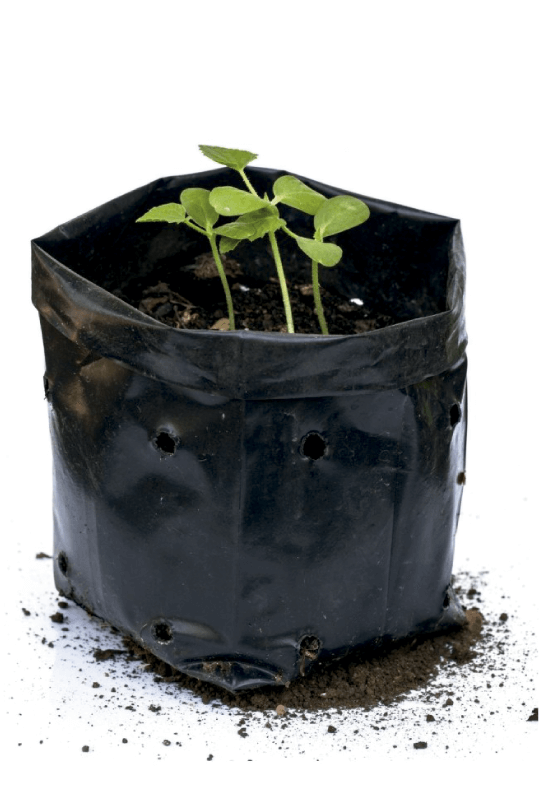
SEEDLING BAGS
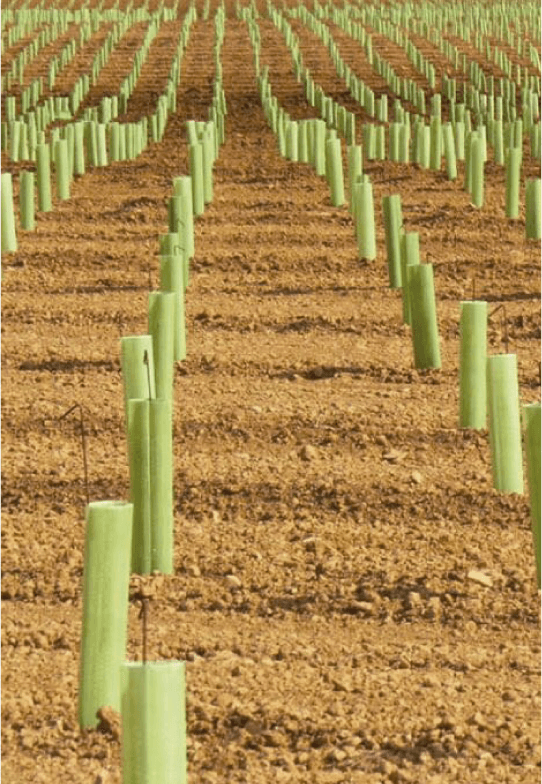
TREE PROTECTORS
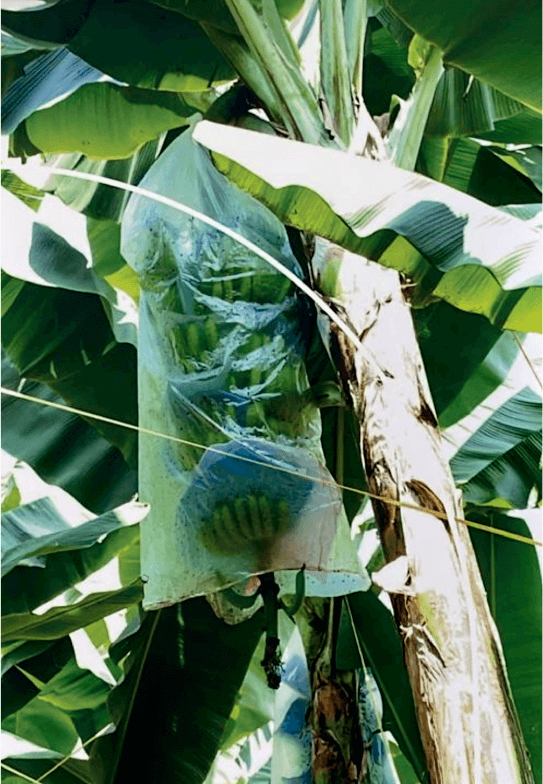
FRUIT BAG PROTECTION NETS E.G. BANANAS
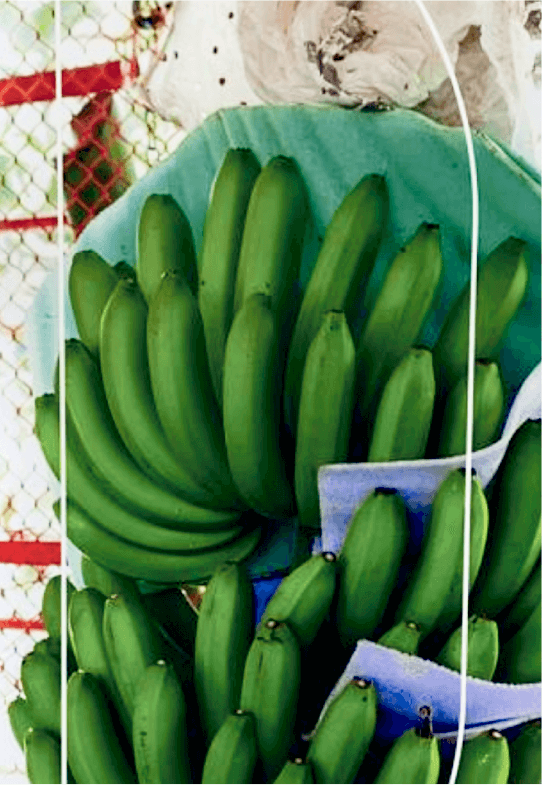
POLYSTYRENE PROTECTIVE LAYERING

SOFT FRUIT NET PROTECTORS E.G. PAPAYA
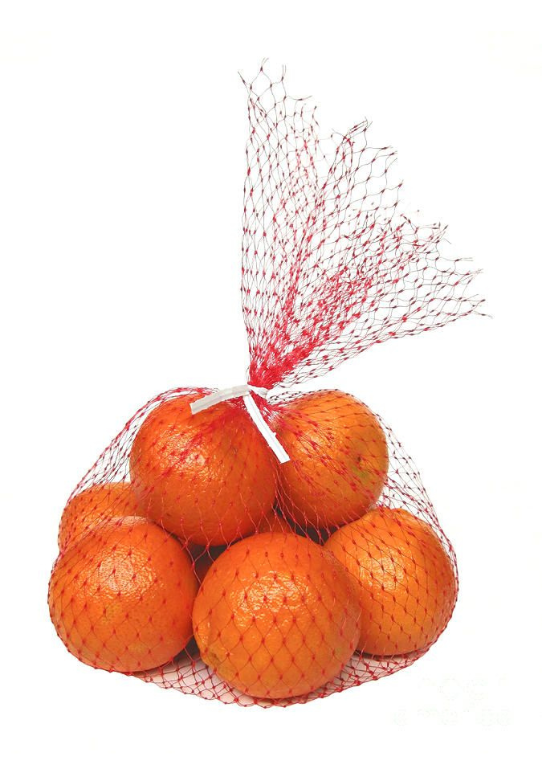
NET BAGS
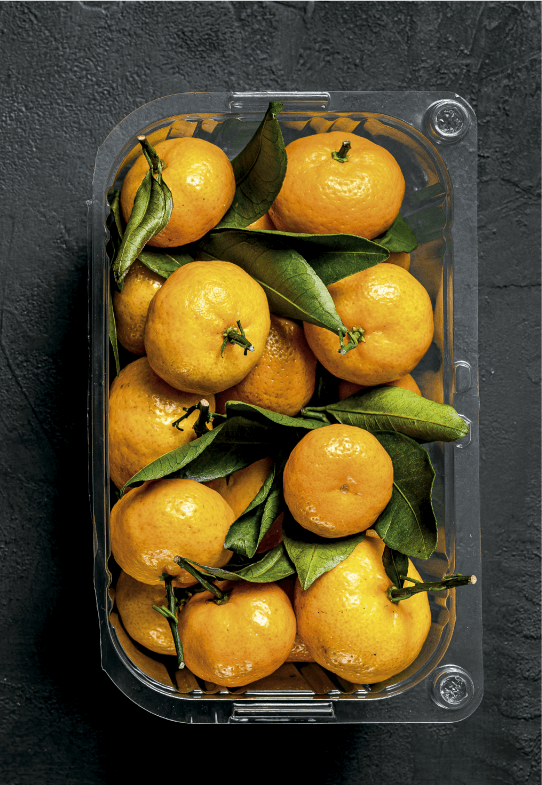
PLASTIC PACKAGING FOR AGRICULTURE
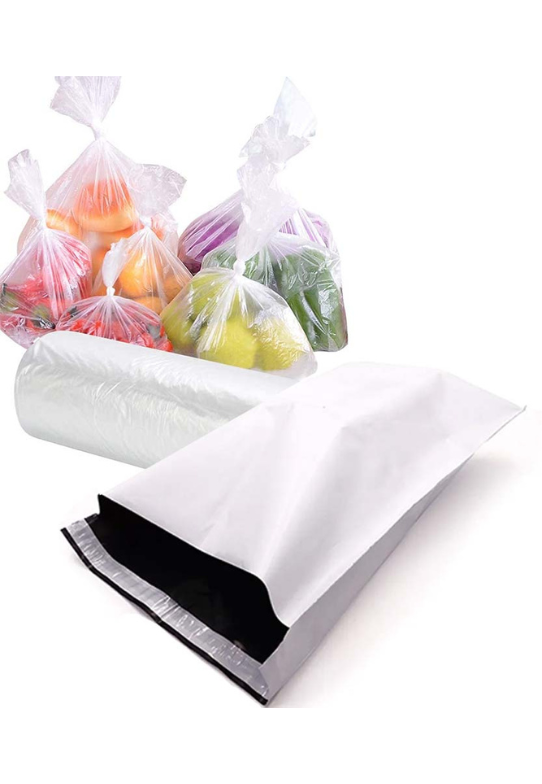
PLASTIC BAGS / POUCHES
We give value to the post-consumer product and encourage the recovery of materials. When recovery is not possible, our state-of-the-art enzyme technology allows the biodegradability of our films, reducing their impact. In addition, we are committed to using the least amount of raw material possible, redesigning products that allow thickness reduction while maintaining the same benefits. Our manufacturing partner, endorsed by the world-leading ISCC Plus certification system, are able to produce various products included in our portfolio.
We are committed to redesigning customer products, eliminating the use of materials that generate pollution, such as heavy metals, phthalates, bisphenols, chlorinated products, etc.
All our plastic films are designed to be easily recoverable, giving value to the post-consumer product and thus encouraging the recovery of materials for reuse.
Study cases | Agricultural Mulching
Please note film specifications, conditions of climate, soil, heat, moisture and other parameters will affect the duration and speed and rate of biodegradation within the parameters of the standard.
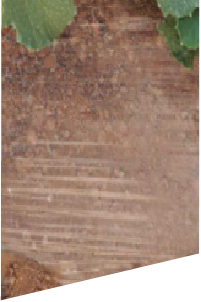
Day 1
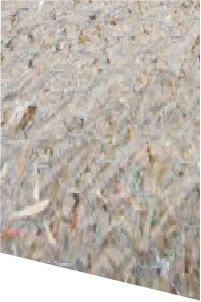
Day 100

Day 210
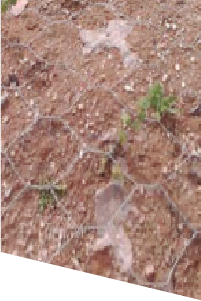
Day 240
*We also have the possibility of biodegradation for 90-120 days and > 12 months.
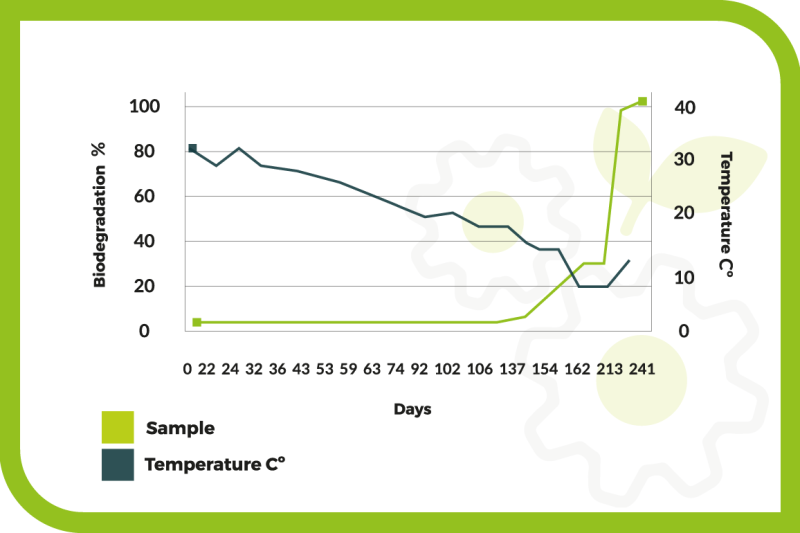
The figures below show the increase of yield using Mulch Film.
This study has been published by the Departament of Agriculture & Cooperation Ministry of Agriculture, Government of India in the “Practical Manual on Plastic Mulching”.
Advantages of plastic mulch
Polyzme
Standard
Uses 50-70% less water
Gives 30-50% increase in crop yield without using additional chemicals or fertilisers
Less soil erosion
Assist in preventing disease and improves weed control
Regulates temperature and humidity in soil
100% biodegradable
Leaves no microplastic nor heavy metals in the soil
Leaves no microplastic nor heavy metals in the soil
100% life cycle management or plastics giving it end of life
Non chemical solution using natural plant based ingredients
Low carbon footprint compared to bioplastics
On average, farmers can increase their production by 40-50% per year.
The figures below show the increase of yield using Mulch Film.
This study has been published by the Departament of Agriculture & Cooperation Ministry of Agriculture, Government of India in the “Practical Manual on Plastic Mulching”.
